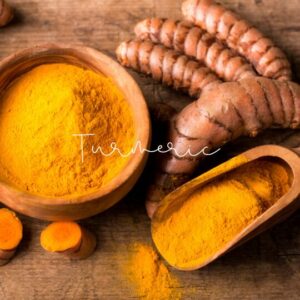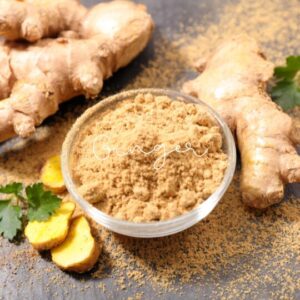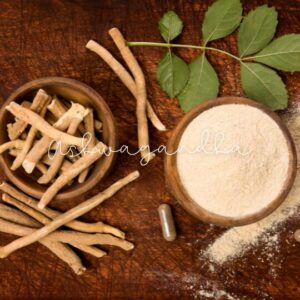Autoimmune diseases affect millions of people worldwide, causing chronic pain, fatigue, and inflammation as the immune system mistakenly attacks the body’s own tissues. Managing an autoimmune condition can be challenging, but natural remedies offer a holistic approach to improve symptoms and enhance overall quality of life.
This article explores 10 powerful natural remedies for autoimmune diseases, including dietary changes, herbal supplements, lifestyle practices, and holistic therapies. Learn how to incorporate these remedies into your routine to naturally support your immune system.
What Are the Best Natural Remedies for Autoimmune Diseases?
Here’s a countdown of the top 10 natural remedies for autoimmune diseases and how they can help you live a healthier life.
10. Turmeric: Is Turmeric Good for Autoimmune Diseases?
Turmeric, a golden spice rich in curcumin, is renowned for its anti-inflammatory and antioxidant properties.
Why It Works: Piperine in black pepper enhances curcumin’s bioavailability, making it more effective in the body.
Benefits: Curcumin reduces inflammation and modulates immune responses, making it ideal for conditions like rheumatoid arthritis and lupus.
How to Use: Add turmeric to soups, stews, rice dishes, or smoothies. Combine it with black pepper (for better absorption) and healthy fats like olive or coconut oil.

This golden spice, often found in curry, contains curcumin, a powerful anti-inflammatory and antioxidant compound.
Curcumin can help reduce inflammation and modulate immune responses, making it particularly beneficial for managing autoimmune conditions like rheumatoid arthritis and lupus.
You can easily incorporate turmeric into your diet by adding it to your meals, such as soups, stews, and rice dishes, or blending it into smoothies for a nutritional boost.
Some people prefer taking turmeric as a supplement for a more concentrated dose.
For better absorption of curcumin, combine turmeric with black pepper, which contains piperine.
Piperine enhances curcumin’s bioavailability, making it easier for your body to absorb and utilize.
Adding a bit of healthy fat, like olive oil or coconut oil, can also improve absorption.
Regular use of turmeric can support your overall health by reducing chronic inflammation and supporting a balanced immune system.
9. Omega-3 Fatty Acids: Can Omega-3s Reduce Inflammation?
Omega-3 fatty acids, found in fatty fish and plant-based sources, are essential for reducing inflammation.
Additional Benefits: Omega-3s support heart health, brain function, and immune regulation.
Sources: Salmon, mackerel, sardines, flaxseeds, chia seeds, and walnuts.
Supplements: Fish oil supplements can ensure adequate intake but choose high-quality options free from contaminants.

These essential fats, especially EPA and DHA, have potent anti-inflammatory properties that can help reduce the inflammation associated with autoimmune diseases.
You can find Omega-3s in fatty fish like salmon, mackerel, and sardines, which are excellent sources of these beneficial fats.
For those who prefer plant-based options, flaxseeds, chia seeds, and walnuts are rich in ALA, a type of Omega-3 that your body can partially convert to EPA and DHA.
Including these foods in your diet regularly can support your immune system and reduce inflammation.
Fish oil supplements are also a convenient option to ensure you’re getting an adequate amount of Omega-3s, especially if you don’t consume enough fatty fish.
However, it’s important to choose high-quality fish oil supplements, as not all fish oils are created equal.
Some lower-quality fish oils may contain contaminants like mercury or be oxidized, which can negate the health benefits.
Always check with your doctor before starting any new supplement, especially if you have an existing health condition or are taking other medications.
Regular intake of Omega-3s not only helps manage autoimmune conditions but also supports heart health and brain function, making them a vital addition to your diet.
8. Ginger: How Does Ginger Help with Autoimmune Diseases?
Ginger’s natural anti-inflammatory properties make it a powerful remedy for managing autoimmune symptoms.
Research: Studies in the Journal of Medicinal Food highlight ginger’s ability to lower inflammatory markers.
Benefits: Reduces pain, inflammation, and improves immune response.
How to Use: Drink ginger tea, add it to meals, or take it as a supplement.

This spicy root has natural anti-inflammatory and antioxidant properties that can help alleviate symptoms of autoimmune diseases.
A study published in the Journal of Medicinal Food found that ginger significantly reduced inflammatory markers in participants with osteoarthritis, suggesting its potential for broader inflammatory conditions.
Ginger works by reducing inflammation and supporting the immune system, making it a valuable addition to your diet.
You can consume ginger as a tea by steeping fresh ginger slices in hot water, add it to your meals for a flavorful kick, or take it as a supplement for a more concentrated dose.
Regular use of ginger can help manage pain and inflammation, providing relief for conditions like rheumatoid arthritis and lupus.
7. Probiotics: Do Probiotics Help Autoimmune Diseases?
Probiotics improve gut health, which is crucial for immune regulation.
Evidence: A study in the Journal of Autoimmunity found probiotics can modulate immune responses.
Sources: Yogurt, kefir, sauerkraut, and kimchi.
Why It Works: A healthy gut microbiome balances the immune system and reduces symptoms of autoimmune diseases.

These beneficial bacteria support gut health, which is crucial for immune function.
A healthy gut microbiome can help regulate the immune system and reduce autoimmune symptoms by maintaining a balanced environment in your digestive tract.
You can get probiotics from fermented foods like yogurt, kefir, sauerkraut, and kimchi, or take a high-quality probiotic supplement.
A healthy gut is often considered the cornerstone of a robust immune system, and research supports this.
For instance, a study published in the Journal of Autoimmunity found that probiotics can modulate the immune response and have a beneficial effect on autoimmune diseases.
Including probiotics in your daily routine can help improve digestion, boost immune health, and potentially alleviate symptoms of autoimmune conditions.
6. Vitamin D: Why Is Vitamin D Important for Autoimmune Health?
Vitamin D plays a key role in immune regulation and inflammation reduction.
Tip: Regularly check Vitamin D levels with a healthcare provider to maintain optimal immune health.
Sources: Sun exposure, fatty fish, fortified dairy products, and egg yolks.
Supplements: Consider supplements if you have limited sun exposure or low dietary intake.

This essential vitamin plays a vital role in immune regulation and has been shown to reduce the risk of autoimmune diseases.
Vitamin D helps modulate the immune system and reduce inflammation, making it a key player in managing autoimmune conditions.
You can get Vitamin D from sun exposure, which allows your body to naturally produce it.
Additionally, you can obtain Vitamin D from foods like fatty fish (such as salmon and mackerel), fortified dairy products, and egg yolks.
Supplements are also a convenient option, especially if you live in an area with limited sunlight or have difficulty getting enough Vitamin D from your diet alone.
It’s important to have your Vitamin D levels checked by a healthcare provider, as deficiency is common and can exacerbate autoimmune symptoms.
Your provider can recommend the appropriate dosage to ensure you’re getting enough without exceeding safe levels.
Regularly monitoring and maintaining optimal Vitamin D levels can help support your immune system, reduce inflammation, and improve your overall health.
5. Green Tea: Is Green Tea Good for Autoimmune Diseases?
Green tea is rich in EGCG (epigallocatechin gallate), an antioxidant that helps regulate immune function.
Caution: Opt for decaffeinated options if sensitive to caffeine.
Benefits: Reduces inflammation and supports cardiovascular and brain health.
How to Use: Drink 2-3 cups daily, hot or cold. Add honey or lemon for flavor.

This popular beverage is rich in antioxidants, particularly EGCG (epigallocatechin gallate), which can help modulate the immune system and reduce inflammation.
EGCG has been shown to interfere with the production of inflammatory molecules, promoting a more balanced immune response.
By regulating inflammation, green tea can be beneficial for managing symptoms of autoimmune diseases, offering relief from chronic pain and discomfort.
Regular consumption of green tea not only supports overall health but also provides a natural way to help control inflammation and boost your immune system.
Green tea is also known for its cardiovascular benefits, aiding in maintaining healthy blood pressure and cholesterol levels.
Additionally, its antioxidant properties support brain health, potentially reducing the risk of neurodegenerative diseases.
To maximize its benefits, aim to drink 2-3 cups of green tea a day.
You can enjoy it hot or cold, and if you find the taste too strong, try adding a bit of honey or lemon for flavor.
Opt for high-quality green tea to ensure you’re getting the most potent benefits, and consider organic varieties to avoid pesticides and other chemicals.
A word of caution though: Green tea contains caffeine, although typically less than black tea or coffee.
The caffeine content in green tea can provide a mild energy boost and improve alertness.
However, if you are sensitive to caffeine or need to limit your intake due to health reasons, there are decaffeinated green tea options available.
Always check with your healthcare provider if you have concerns about caffeine consumption, especially if you have an autoimmune condition or other health issues that might be affected by caffeine.
4. Ashwagandha: Can Ashwagandha Reduce Autoimmune Symptoms?
Ashwagandha, an adaptogenic herb, balances immune function and helps the body manage stress.
Forms: Supplements, powders, or teas make it easy to include in your daily routine.
How It Helps: Reduces inflammation, boosts energy, and manages stress-related flare-ups.

This adaptogenic herb is known for its ability to help the body manage stress and balance immune function, which is crucial for those with autoimmune conditions.
Ashwagandha has been shown to reduce inflammation and support overall health by promoting a balanced immune response.
You can take Ashwagandha in various forms, such as supplements, powders, or brewed as a tea. Its versatility makes it easy to incorporate into your daily routine.
Adding Ashwagandha to your regimen can help support your immune system, reduce stress-related flare-ups, and manage autoimmune symptoms more effectively.
Regular use of Ashwagandha can lead to improved energy levels, better stress management, and enhanced immune function, making it a valuable natural remedy for those dealing with autoimmune diseases.
3. Aloe Vera: Does Aloe Vera Help with Autoimmune Conditions?
Aloe vera is known for its soothing and anti-inflammatory properties.
How to Use: Drink aloe vera juice or use supplements for digestive support.
Benefits: Calms the digestive tract and reduces inflammation, especially for conditions like Crohn’s disease.

Known for its anti-inflammatory and healing properties, aloe vera can help soothe the digestive tract and reduce overall inflammation.
This makes it particularly beneficial for autoimmune conditions affecting the gut, such as Crohn’s disease and ulcerative colitis.
The soothing gel from the aloe vera plant can help calm irritated tissues and support healing processes in the digestive system.
You can consume aloe vera juice or take it in supplement form to support your digestive health and manage inflammation.
Regular use of aloe vera can promote better gut health, alleviate symptoms of gastrointestinal discomfort, and help maintain a balanced immune response.
2. Holy Basil (Tulsi): Is Holy Basil Good for Stress and Immunity?
Holy basil, or tulsi, is an adaptogen that helps modulate immune responses.
Research: A study in the Journal of Ayurveda and Integrative Medicine highlights its stress-reducing benefits.
Benefits: Reduces inflammation, cortisol levels, and oxidative stress.
How to Use: Drink as tea, take supplements, or use fresh leaves in meals.

This powerful adaptogen helps the body cope with stress and modulate immune responses, making it an excellent choice for managing autoimmune conditions.
Holy basil has anti-inflammatory and antioxidant properties that can help reduce inflammation and oxidative stress, which are common issues in autoimmune diseases.
You can consume holy basil in various forms: drink it as a tea, take it as a supplement, or add it to your meals for a flavorful and health-boosting herb.
One study published in the “Journal of Ayurveda and Integrative Medicine” found that holy basil can lower levels of cortisol, the stress hormone, and improve overall immune function.
Regular use of holy basil can support your immune system, improve stress resilience, and enhance overall health.
However, it’s important to consult with your healthcare provider before adding holy basil to your regimen, especially if you are pregnant, breastfeeding, or taking medications, as it may interact with certain drugs.
1. Gluten-Free Diet: Should You Avoid Gluten with Autoimmune Diseases?
For many, eliminating gluten significantly reduces autoimmune symptoms.
Research: Studies in the Journal of Clinical Gastroenterology show a gluten-free diet improves symptoms and quality of life.
Why It Helps: Gluten can trigger inflammation in sensitive individuals, especially those with celiac disease or gluten sensitivity.
How to Start: Avoid wheat, barley, and rye. Opt for gluten-free grains like quinoa and rice.

Many people with autoimmune diseases find significant relief from symptoms by eliminating gluten from their diet.
Gluten, a protein found in wheat, barley, and rye, can trigger inflammation and exacerbate autoimmune symptoms in sensitive individuals.
By avoiding foods that contain gluten and opting for gluten-free alternatives, you can reduce inflammation and support your overall health.
This dietary change can be especially beneficial for those with celiac disease or other gluten-related disorders.
A study published in the Journal of Clinical Gastroenterology found that a gluten-free diet significantly improved symptoms and quality of life in patients with celiac disease.
Additionally, the American Journal of Gastroenterology reported that non-celiac gluten sensitivity can also cause a variety of symptoms, including gastrointestinal distress, fatigue, and joint pain, which can improve on a gluten-free diet.
Incorporating naturally gluten-free foods such as fruits, vegetables, lean proteins, and gluten-free grains like quinoa and rice can help you maintain a balanced and nutritious diet.
It’s also important to read labels carefully, as gluten can be hidden in many processed foods.
Opting for whole, unprocessed foods can make it easier to adhere to a gluten-free diet and ensure you are getting the necessary nutrients.
Adopting a gluten-free lifestyle can lead to improved digestion, reduced inflammation, and better management of autoimmune symptoms, contributing to overall well-being.
Always consult with a healthcare provider or a dietitian to ensure that you are meeting your nutritional needs while on a gluten-free diet and to receive personalized guidance on managing your autoimmune condition.
And there you have it! The top 10 natural remedies for managing autoimmune diseases: turmeric, omega-3 fatty acids, ginger, probiotics, vitamin D, green tea, ashwagandha, aloe vera, holy basil, and a gluten-free diet.
By incorporating these natural remedies into your daily routine, you can reduce inflammation, support your immune system, and take steps toward improving your overall quality of life.
What’s Your Go-To Remedy for Autoimmune Health?
We’d love to hear from you! Share your favorite natural remedies or tips for managing autoimmune diseases in the comments below. Your experience might inspire and help someone else on their journey.
Stay healthy and take care!